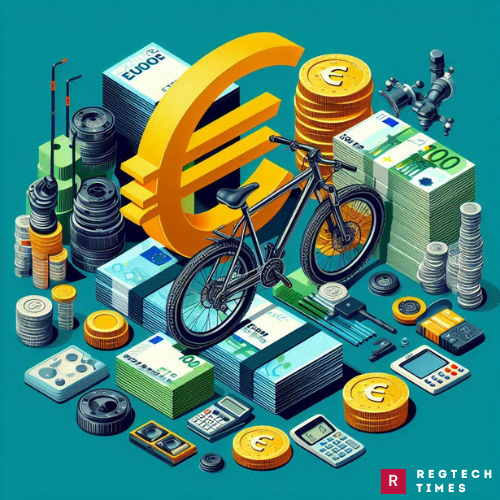In a recent development echoing across the financial corridors of Europe, the European Public Prosecutor’s Office (EPPO) has launched a rigorous investigation into a suspected customs fraud involving electric bicycles (E-bikes) imported into the European Union (EU). The case, centered in Milan, Italy, has unveiled intricate maneuvers allegedly undertaken by an Italian company to evade substantial customs duties, leading to an estimated financial loss exceeding €9.8 million.
Allegations of E-Bike Customs Fraud
The crux of the investigation revolves around accusations that an Italian company systematically imported e-bikes from China in an unassembled state, shipped in separate parts across multiple consignments. This practice, as alleged by authorities, was not merely for logistical ease but rather a calculated strategy to circumvent stringent EU customs regulations introduced in 2019. These regulations, specifically anti-dumping measures, were designed to protect EU markets from unfairly priced goods imported from non-EU countries, including China.
Modus Operandi of the E-Bike Import Scheme
According to reports from the Guardia di Finanza, the Italian financial police, the company purportedly exploited a loophole in the customs framework. By importing E-bikes in unassembled parts, the company aimed to avoid paying the heightened anti-dumping duties and other associated taxes, such as VAT, which would have been applicable had the bicycles been imported as fully assembled units. This tactic allegedly continued unabated from 2019 until 2022, resulting in a substantial financial impact on the EU’s revenue stream.
EPPO’s Intervention and Freezing Order against E-Bike Importer
The EPPO, acting on a report filed by the Guardia di Finanza in Monza, initiated proceedings against the implicated company. On October 20, 2023, the EPPO in Milan sought and obtained a freezing order amounting to €5,039,260.08. This figure represents the estimated customs duties and relevant VAT that went unpaid since July 30, 2020, when the company’s liability under Italian law for such offenses came into effect. Subsequently, on July 8, 2024, the judge for preliminary investigations at the Court of Milan endorsed this request, issuing a freezing order against the company’s assets.
Legal Implications for E-Bike Importers and EU Customs Enforcement
The EPPO, established as an independent prosecutor’s office of the European Union, assumes a pivotal role in safeguarding the EU’s financial interests. It investigates and prosecutes crimes of significant magnitude that undermine the financial integrity of the EU, including fraud and corruption related to e-bike imports. The ongoing investigation emphasizes the EPPO’s commitment to upholding transparency and accountability within the European market, ensuring that entities engaging in fraudulent practices face legal consequences.
Broader Impact on E-Bike Trade Policies in the EU
Beyond the immediate legal ramifications, this case sheds light on broader implications for EU trade policies and enforcement mechanisms related to e-bikes. It highlights the challenges faced by regulatory bodies in combating sophisticated forms of economic crime, particularly in a globalized economy where supply chains span multiple continents. The alleged fraud not only highlights vulnerabilities in the EU’s customs oversight but also serves as a reminder of the importance of robust enforcement measures to protect fair competition and economic stability within the single market.
As the investigation unfolds, all parties involved are afforded the presumption of innocence until proven guilty in competent courts of law. The outcome of this case will not only determine the legal fate of the accused company but also set precedents for future enforcement actions against similar offenses involving e-bike imports. The EPPO’s proactive stance in pursuing such cases highlights its role as a guardian of the EU’s financial interests, striving to maintain the integrity of the single market amidst evolving challenges in global trade dynamics.
The alleged €9.8 million customs fraud involving e-bikes in Italy stands as a testament to the complexities and stakes involved in regulating international trade within the European Union. It serves as a clarion call for enhanced vigilance and robust enforcement mechanisms to safeguard the EU’s economic interests in an increasingly interconnected global economy.


